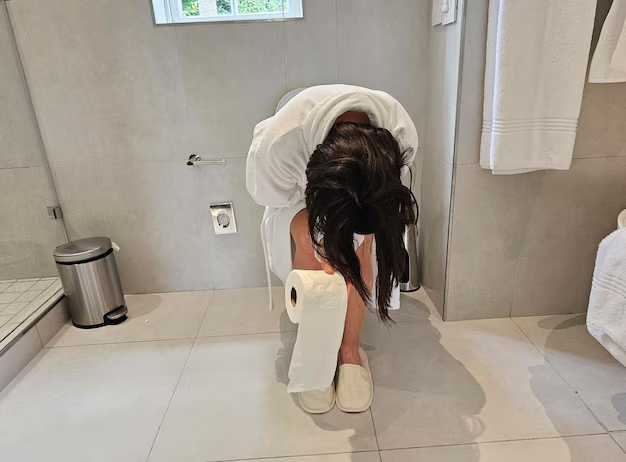Do Hemorrhoids Lead to Bowel Incontinence? Here's What You Need to Know
Imagine the discomfort of dealing with hemorrhoids, only to be compounded by an overwhelming concern: "Can hemorrhoids cause bowel incontinence?" This is a question that worries many and one worth exploring thoroughly. Delving into these topics can help demystify their connections and clarify what you might be experiencing. Here, we delve into the relationship, implications, and other facets of hemorrhoids and bowel incontinence—all presented in an approachable manner that emphasizes clarity and understanding.
Understanding Hemorrhoids: The Basics
Hemorrhoids are swollen blood vessels located in the lower rectum and anus. They're a common condition that many people will encounter at some point in their lives. There are two types of hemorrhoids:
- Internal Hemorrhoids: Found inside the rectum, they are typically painless but might cause bleeding.
- External Hemorrhoids: Located under the skin around the anus and can be itchy or painful; they may also bleed.
Symptoms of hemorrhoids include discomfort, itching, and rectal bleeding, and they can be exacerbated by factors such as straining during bowel movements, pregnancy, or a low-fiber diet.
Exploring Bowel Incontinence
Bowel incontinence, also known as fecal incontinence, involves the involuntary loss of bowel control. This can range from an occasional leakage of stool while passing gas to a complete loss of control over bowel movements. It's a condition that can significantly affect one's quality of life and is more common than often discussed openly.
Causes of Bowel Incontinence
Several factors can lead to bowel incontinence, including:
- Muscle Damage: Injury to the anal sphincter muscles can reduce control.
- Nerve Damage: Issues such as diabetes or spinal cord injuries can affect the nerves that control bowel movements.
- Rectal Issues: Conditions like prolapse or cancer altering bowel control.
Incontinence can be a distressing issue, further complicated by embarrassment or reluctance to seek help.
Assessing the Connection: Hemorrhoids and Bowel Incontinence
The question remains: Can hemorrhoids cause bowel incontinence? The relationship is not direct, but there are several avenues in which hemorrhoids can contribute to difficulties with bowel control.
How Hemorrhoids Might Influence Incontinence
- Pain and Avoidance: External hemorrhoids can cause discomfort leading individuals to avoid bowel movements. This aversion might result in inconsistent bowel habits contributing to accidental leaks.
- Surgery Complications: Procedures to remove severe hemorrhoids sometimes entail minor risks, including potential damage to anus muscles, which might affect control.
However, it's essential to recognize that while hemorrhoids can complicate bowel control, they're generally not a primary cause of incontinence. Incontinence is often due to more complex, underlying issues.
Related Conditions and Risk Factors
Understanding potential risk factors and related conditions that may exacerbate hemorrhoids and lead to bowel incontinence is crucial for a comprehensive perspective.
Contributing Factors to Hemorrhoids
- Constipation: Constant straining can inflame hemorrhoids.
- Pregnancy: Enlarged uterus pressure increases risk.
- Aging: Tissue supporting veins in the rectum and anus can weaken over time.
Risk Factors for Bowel Incontinence
- Age: Older adults experience incontinence more frequently.
- Chronic Health Conditions: Conditions such as diabetes and multiple sclerosis might affect nerve control.
- Childbirth: Particularly difficult deliveries can impact pelvic muscle strength.
Practical Steps and Considerations
While hemorrhoids and bowel incontinence can present significant challenges, there are actionable steps and considerations to help manage the conditions effectively.
Managing Hemorrhoids
- Dietary Adjustments: Incorporate high-fiber foods to ease bowel movements.
- Hydration: Drinking plenty of fluids helps maintain soft stool consistency.
- Topical Treatments: Over-the-counter creams and sitz baths can relieve discomfort.
Addressing Bowel Incontinence
- Pelvic Floor Exercises: These can help strengthen muscles around the anus.
- Scheduled Toileting: Planning regular bathroom visits might prevent unexpected urges.
- Lifestyle Modifications: Manage weight and be mindful of medication side-effects that might worsen incontinence.
Seeking Medical Insight
Given the complexities involved with both hemorrhoids and bowel incontinence, consulting a medical professional is highly recommended. They can evaluate symptoms thoroughly and offer tailored advice based on individual circumstances, guiding further diagnostic tests if needed.
Building Awareness and Compassion
Beyond individual action, broader awareness can help dispel stigma. Both hemorrhoids and bowel incontinence are common, yet sensitive medical issues that can benefit immensely from more open dialogues and enhanced understanding.
Key Takeaways and Next Steps 📝
- Hemorrhoids are NOT a primary cause of bowel incontinence, but they can complicate bowel control.
- Risk Factors Include: Straining, pregnancy, and aging for hemorrhoids; childbirth and chronic illnesses for incontinence.
- Management Tips: Embrace high-fiber diets, adequate hydration, and regular physical exercise. Avoid constipation triggers.
- Consult Healthcare Providers for comprehensive evaluations and personalized management plans.
- Encourage Open Dialogue to reduce stigma and promote supportive communities for those affected.
Maintaining a mindful approach to health, recognizing symptoms early, and seeking professional advice are all parts of an empowered response to both hemorrhoids and bowel incontinence challenges.

Related Articles
- Are Incontinence Supplies Tax Deductible
- Can a Bladder Infection Cause Urinary Incontinence
- Can a Kidney Stone Cause Incontinence
- Can a Urinary Tract Infection Cause Incontinence
- Can a Uti Cause Incontinence
- Can Constipation Cause Incontinence
- Can Dairy Cause Incontinence
- Can Hemorrhoids Cause Incontinence
- Can Incontinence Be Cured
- Can Urinary Incontinence Be Cured
